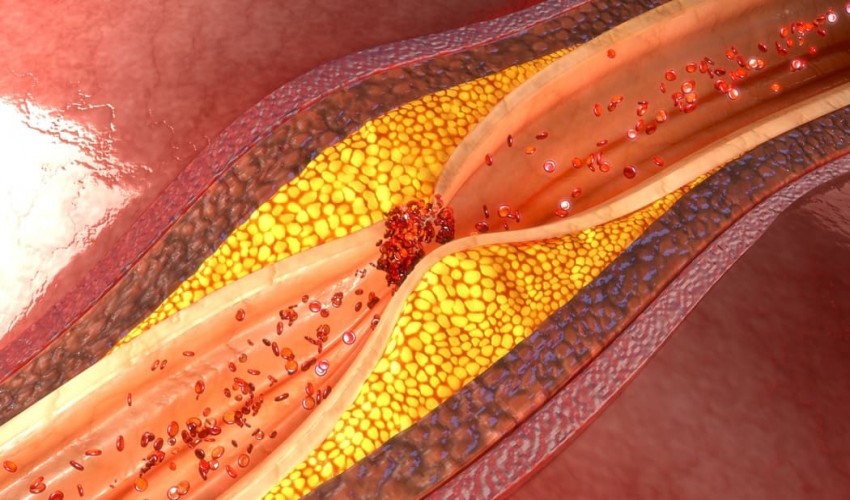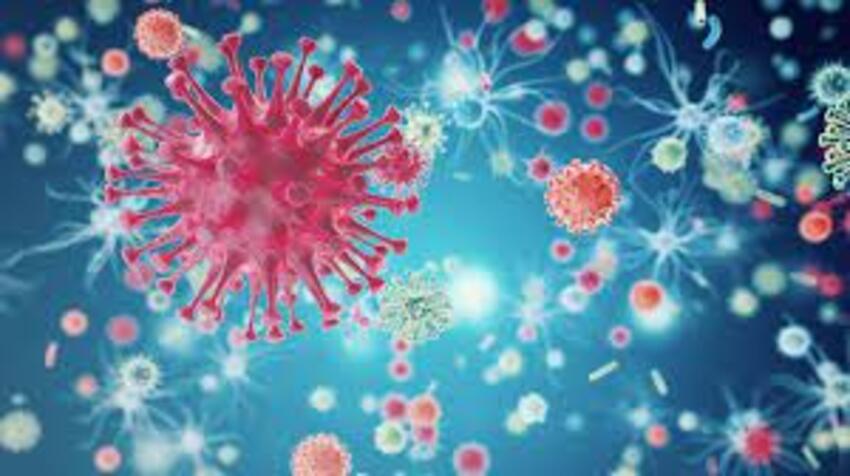
While HDL is considered "good" cholesterol, it doesn't always promote heart health in all situations.
- Rating
- cardiovascular
- lipoprotein
- coronary
- cardiology
- heart
- hdl
- artery
- blood
These two well-known characters, "good" and "bad" cholesterol, have been in the heart health tale for quite some time. A crucial story twist, however, is that "good" cholesterol is not necessarily bad.
More recent studies on high-density lipoprotein (HDL), the particles that transport "good cholesterol," have painted a more complicated and divided picture of HDL's impact on cardiovascular disease.
And now there's a huge new research casting new doubt on it. According to a study published in the November Journal of the American College of Cardiology, researchers found that high levels of HDL cholesterol were not connected with protection against heart disease in either Black or white subjects. There was a difference in the association between low HDL cholesterol and an increased risk of heart disease between white and Black subjects.
This is the first research to compare the risks associated with low HDL cholesterol levels in black and white populations. This study adds to the growing body of research suggesting that elevated HDL cholesterol levels may not be beneficial to cardiovascular health.
It seems that HDL has several additional useful properties as well. On the other hand, studies have shown that the function of HDL in health is nuanced and dynamic, with much yet to be uncovered.
There isn't definitive evidence that HDL causes heart disease.
There has been a long-standing distinction between "good" and "bad" cholesterol. The opposite is true for the "bad" variety, which is transported by low-density lipoprotein (LDL) particles and is associated with an increased risk of cardiovascular disease.
The Framingham Heart Study, a government-led initiative begun in 1948 to explore risk factors for cardiovascular disease, is one of the major publications to describe HDL cholesterol as "healthy." In a study conducted on a mostly white population, Framingham researchers found that high levels of HDL cholesterol were associated with a reduced risk of coronary disease.
The assumption that high levels are always beneficial to heart health was eventually disproved, however. The risk of heart attack is not reduced among those who have a genetic mutation that increases their HDL cholesterol level, for instance (SN: 5/18/12). While a group of medications designed to boost HDL cholesterol performed an excellent job of increasing levels, they had no effect on cardiovascular risk.
However, HDL cholesterol is just one piece of the puzzle. Cholesterol carried by HDL particles is shown by this often reported value. HDL transports cholesterol from the bloodstream to the liver, where it may be broken down and eliminated. This prevents the buildup of cholesterol in the arterial walls, which may cause circulation problems.
HDL has recently been the focus of investigation beyond its traditional lipid (cholesterol) role. Anand Rohatgi, a cardiologist at the University of Texas Southwestern Medical Center in Dallas, says that although cholesterol may be measured, it doesn't actually represent the actual tasks that HDL is accomplishing in the body.
There seems to be a correlation between HDL levels and its ability to eliminate cholesterol. HDL's capacity to take up cholesterol from macrophages is one indicator of how well it does its function. Higher levels of this ability were associated with decreased rates of heart attacks and strokes in a 2014 study of over 3,000 individuals in the United States, 49 percent of whom were Black. This research was published in the New England Journal of Medicine by Rohatgi and colleagues.
HDL has various functions in the body, and one of them is to eliminate cholesterol. HDL seems to protect against cardiovascular disease through anti-inflammatory and other preventive actions. Still, not all of these outcomes are positive overall. HDL's ability to take up cholesterol might be impaired and it can even contribute to inflammation under certain conditions. Rohatgi explains that the difficulty in examining HDL particles stems from the fact that their functions vary depending on the circumstances.
The ability to evaluate HDL's effectiveness as part of a routine checkup is still in its infancy. At least according to Nathalie Pamir, a cardiologist and researcher at Oregon Health & Science University in Portland, "how to do it yet for the general population" is unclear.
The beneficial effects of HDL cholesterol on cardiovascular health may vary by race.
Although researchers are making progress toward a more nuanced understanding of HDL and its potential use as a therapeutic measure, the notion that HDL cholesterol is always beneficial persists. Additionally, one's HDL cholesterol level is still a factor in a popular cardiovascular risk calculation. Pamir and her colleagues set out to investigate the implications of high and low HDL cholesterol levels in today's multiethnic society.
The new research looked at information from the REGARDS experiment, which aimed to determine whether there were any racial or geographic disparities in stroke mortality in the United States. Nearly 24,000 people without preexisting coronary heart disease participated in the trial (42% of them were Black). Around 10% of the Black participants (664 out of 10,095) and 15% of the White participants (951 out of 13,806) experienced a heart attack or died from one over the course of around a decade.
Consistent with previous studies, the researchers discovered that elevated "bad" LDL cholesterol was associated with a greater risk of coronary heart disease. High levels of HDL cholesterol, on the other hand, offered no protection to anybody, while low levels were solely associated with increased risk among white persons. Based on these results, Pamir proposes reevaluating the role of HDL cholesterol in risk assessments of cardiovascular disease.
HDL cholesterol "is complex," she explains, rather than just "excellent." A doctor "may remark, well, today we don't know what it signifies" if a patient presents with high HDL cholesterol.
Although the study suggests that HDL cholesterol levels may have a different effect on disease risk depending on race, it is important to keep in mind that race is a social construct and not a biological one, according to Clyde Yancy, chief of cardiology at Northwestern University Feinberg School of Medicine in Chicago.
"self-described Black Americans" "are more prominent in several of the risk factors for coronary heart disease, including high blood pressure and smoking," he notes. These risk factors may be affected by a community's availability of resources including health care, healthy dietary options, and educational and career prospects (SN: 5/15/17). Yancy adds, "There is something special about geography and the history of place that may predispose to the burden of hypertension, obesity, even diabetes."
Yancy believes additional investigation is needed to determine why there may be a racial difference in HDL cholesterol and cardiovascular disease risk that was reported in the study. LDL cholesterol, which may build up in artery walls, is still connected with an elevated risk, he adds. According to "the LDL cholesterol appears to be our most meaningful gauge."
Despite the wealth of information available, researchers still lack a complete understanding of the factors that increase or decrease the risk of cardiovascular disease. Yancy argues that "we're not able to capture the full of the risk" with present approaches because of the frequency with which cardiologists see heart attacks in patients with normal cholesterol and blood pressure.
Leave a Reply
Your email address will not be published. Required fields are marked *


